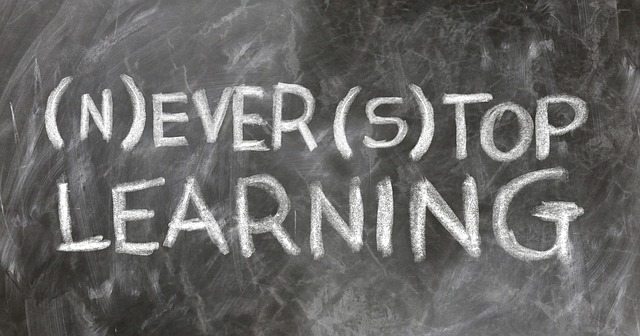The Impact of Self-Reflection on Personal Growth
Self-reflection stands out as a pivotal element in the journey of personal growth. When individuals engage in self-reflection, they actively take the time to examine their thoughts, feelings, and actions. This introspection helps clarify experiences and offers a deeper understanding of oneself. Over time, self-reflection transforms into an invaluable tool, paving the way for enhanced personal development. As one navigates through life’s complexities, the conscious act of looking inward provides a foundation for growth and evolution. In a world that often encourages constant busyness, carving out moments for self-reflection allows one’s true aspirations and challenges to surface.
People frequently perceive personal growth as a linear process. However, the reality is quite different. Personal growth involves understanding one’s strengths, weaknesses, desires, and fears. Self-reflection acts as a compass, guiding you through these complexities. For instance, consider a common situation: a disagreement with a colleague. Instead of merely labeling the incident as a failure, self-reflection allows you to analyze your contribution to the conflict. What could you have done differently? How did your emotions influence the interaction? This level of introspection encourages a shift in perspective, empowering you to learn from the experience and address similar situations in the future more effectively.
The Mechanism of Self-Reflection
Understanding the mechanism of self-reflection is crucial to leveraging its power for personal growth. At its core, self-reflection requires intentionality. Taking the time to pause amid life’s chaos fosters an environment for introspection. This could manifest through journal writing, meditation, or even long walks in nature. Each method creates a space for thoughts to flow freely. When individuals commit to these practices, they often discover patterns in their thoughts and behaviors. Recognizing these patterns serves as the first step toward meaningful change.
Moreover, self-reflection encourages the acknowledgment of emotions. When you systematically review past experiences, you find opportunities to engage with various feelings. Suppressing emotions often leads to unresolved internal conflict, which hinders personal growth. Instead, embracing your feelings as they arise allows for a more honest self-assessment. Are you afraid of vulnerability? Do you find it challenging to express gratitude? By identifying such emotions, you can work toward better emotional intelligence. As a result, your interactions gain depth and authenticity, ultimately contributing to personal development.
The Benefits of Self-Reflection for Personal Development
The transformation that self-reflection brings to personal development is multi-faceted. For starters, engaging in this practice enhances self-awareness. Without self-awareness, it becomes nearly impossible to achieve genuine growth. When individuals truly understand their motivations and behaviors, they can create meaningful goals. For instance, if one realizes a longing for deeper connections, they can prioritize building those relationships rather than staying mired in surface-level interactions.
Furthermore, self-reflection plays a pivotal role in fostering resilience. Life presents numerous challenges, and how one responds to these hurdles greatly influences personal growth. Individuals who regularly reflect on their experiences tend to develop coping strategies that align with their core values. Instead of succumbing to negativity when faced with adversity, they can draw from their past triumphs and apply those lessons. This proactive approach leads to greater emotional fortitude over time. Resilience thus lays the groundwork for continued evolution, creating a cycle of growth that perpetuates itself.
Incorporating Self-Reflection into Daily Life
Incorporating self-reflection into daily life does not require vast amounts of time or resources. Instead, small, consistent practices can yield significant results. One effective method involves dedicating a few minutes each day to self-reflection. This could occur in the morning before starting the day or in the evening as a part of your winding down routine. Regardless of the timing, it is essential to approach this time with an open mind. You might set the stage with calming music or find a comfortable spot to help facilitate your thoughts.
Journaling serves as an excellent tool in this daily practice. Consider maintaining a gratitude journal, where you write down three things you appreciate every day. This aligns your focus with positive aspects of your life while reflecting on areas that warrant attention. Alternatively, you could take a deeper dive by keeping a personal growth journal. In this space, document your thoughts on challenges you face, goals you wish to achieve, or lessons learned from experiences. Over time, these entries become a resource, providing insight into your personal journey.
Self-Reflection and Goal Setting
Goal setting finds profound synergy with self-reflection. When individuals take time to reflect on their desires and aspirations, they can set informed and realistic goals. Many people dive into goal setting without first considering their current context. This can lead to aimless pursuits that don’t resonate deeply with their inner selves. Engaging in self-reflection before setting goals allows for a more aligned strategy. You might ask yourself critical questions: What am I passionate about? What skills do I naturally excel at? Answering these questions with honesty paves the way for setting impactful goals that contribute to genuine personal development.
Additionally, revisiting your goals periodically through self-reflection ensures that you remain aligned with your evolving self. As time passes, interests may shift, or new passions may emerge. An ongoing dialogue with yourself fosters adaptability. It isn’t uncommon for someone to passionately pursue a goal only to find it becomes irrelevant after a while. Regular reflection offers an opportunity to recalibrate, ensuring that your efforts genuinely serve your aspirations. This dynamic approach to goal setting creates a sense of flow in your life, where you are both challenged and fulfilled.
Challenges of Self-Reflection
While self-reflection offers immense benefits, it can also present challenges. Many individuals experience discomfort when facing their inner thoughts and feelings. This discomfort often stems from fear of judgment or a reluctance to confront uncomfortable truths. It’s crucial to acknowledge these feelings as part of the process. Overcoming this initial resistance can lead to deeper insights and ultimately fuel personal growth.
Another challenge emerges from the cultural norm that values constant productivity. Society often equates busyness with worth. In a context where taking time to think feels indulgent, self-reflection may not receive the attention it deserves. To navigate this, you may need to intentionally carve out space in your life for stillness. Communicating to others your need for this time can also help create supportive surroundings. Sharing your goals and commitment to personal growth may inspire others to join you on this journey.
Tools and Techniques for Effective Self-Reflection
Countless tools and techniques elevate the practice of self-reflection, making it an enriching experience. Meditation remains one of the most popular methods, providing an avenue to explore thoughts without judgment. Many find that guided meditations focused on self-discovery, available through various apps, lead to profound insights. This withdrawal into stillness brings clarity to one’s thoughts and encourages exploration of emotions without distractions.
Another effective technique involves mindfulness practices. By engaging in activities like mindful eating or walking, individuals create opportunities to check in with their internal dialogue. As you savor each bite of food or become aware of your surroundings during a walk, you cultivate an atmosphere conducive to reflection. This presence in the moment allows for the acknowledgment of feelings and thoughts, leading to richer insights about oneself.
The Importance of Community in Self-Reflection
While self-reflection is a deeply personal endeavor, the role of community cannot be overlooked. Engaging in discussions with others frequently catalyzes deeper insights. Whether through workshops, support groups, or even informal conversations with friends, sharing experiences can enrich one’s self-reflection practice. Providing and receiving feedback adds depth to the interpretation of experiences. An external perspective often reveals blind spots that you might have overlooked in your journey.
Additionally, community encourages accountability. When individuals share their goals and growth journeys with others, they invite support and encouragement. This network fosters a sense of belonging and shared purpose, creating environments where everyone transitions towards personal development. As you embark on your self-reflection journey, consider seeking out communities or groups that resonate with your growth aspirations.
Personal Reflection Stories: Lessons Learned
Inspirational stories often highlight the transformative impact of self-reflection. Consider the tale of an entrepreneur who faced numerous business challenges. Initially, this individual viewed setbacks as failures, but through self-reflection, they discovered valuable lessons within those challenges. By analyzing each misstep, they learned more about resilience and adaptability. This journey not only transformed their business approach but also fostered a more profound sense of self. Such stories serve as powerful reminders that personal growth often blossoms from introspective practices.
Various individuals across different fields have engaged in self-reflection, and their lessons resonate universally. For example, authors often credit their writing process to self-reflection. They dive deep into personal experiences, re-evaluating their thoughts and emotions to express deeper themes in their work. This practice not only bolsters their craft but also enriches their understanding of self and society. These narratives exemplify that engaging in self-reflection is not just an individual pursuit but also adds value to broader communities and cultural narratives.
Frequently Asked Questions
1. What is self-reflection?
Self-reflection is the process of examining one’s thoughts, feelings, and actions to gain insight into personal experiences. It promotes self-awareness and personal growth by allowing individuals to analyze their behaviors and emotions systematically.
2. How does self-reflection contribute to personal growth?
Self-reflection enhances self-awareness, fosters emotional intelligence, and promotes resilience. This introspection encourages individuals to learn from their experiences, leading to informed decision-making and meaningful goals.
3. Can self-reflection be practiced daily?
Yes, self-reflection can easily become a daily practice. Dedicating a few minutes each day—such as journaling or meditating—allows you to engage with your thoughts and feelings consistently, promoting personal development over time.
4. What are some common tools for self-reflection?
Common tools include journaling, meditation, mindfulness activities, and guided reflections. Each method offers different ways for individuals to explore their thoughts and emotions effectively.
5. How can I overcome discomfort in self-reflection?
To overcome discomfort, first acknowledge your feelings without judgment. Gradually ease into self-reflection by creating a supportive environment, and consider sharing your reflections with trusted individuals to gain additional perspectives.



